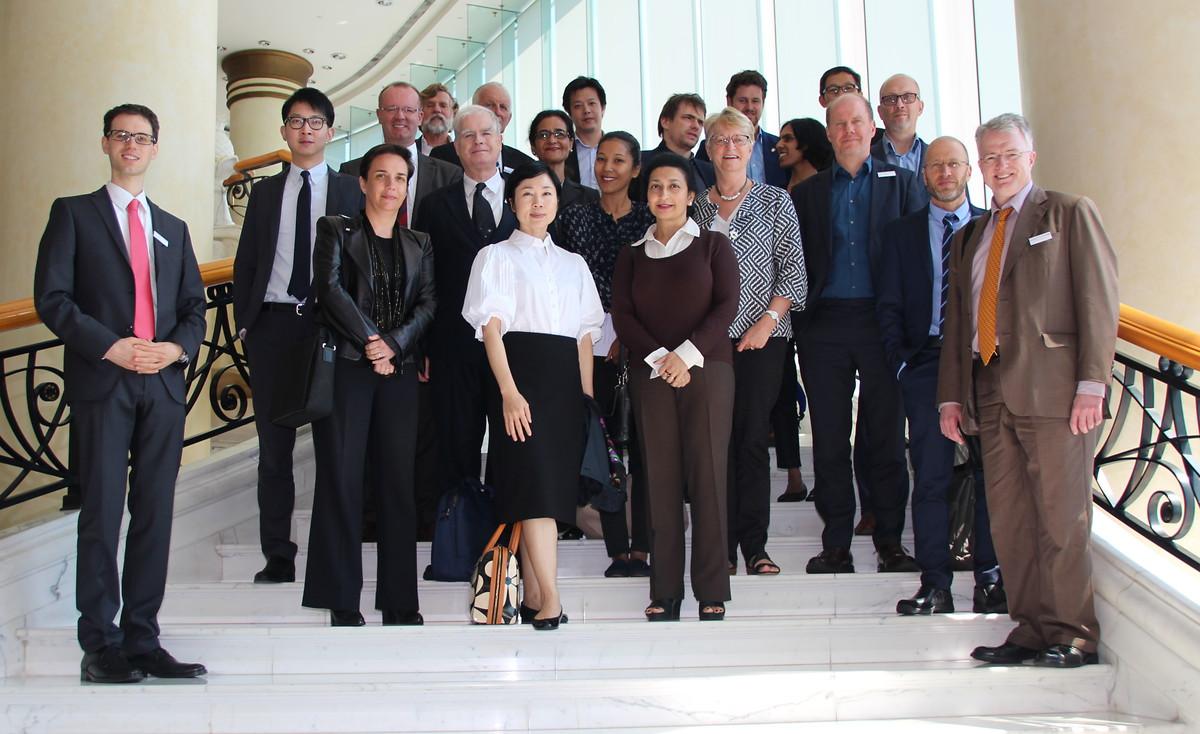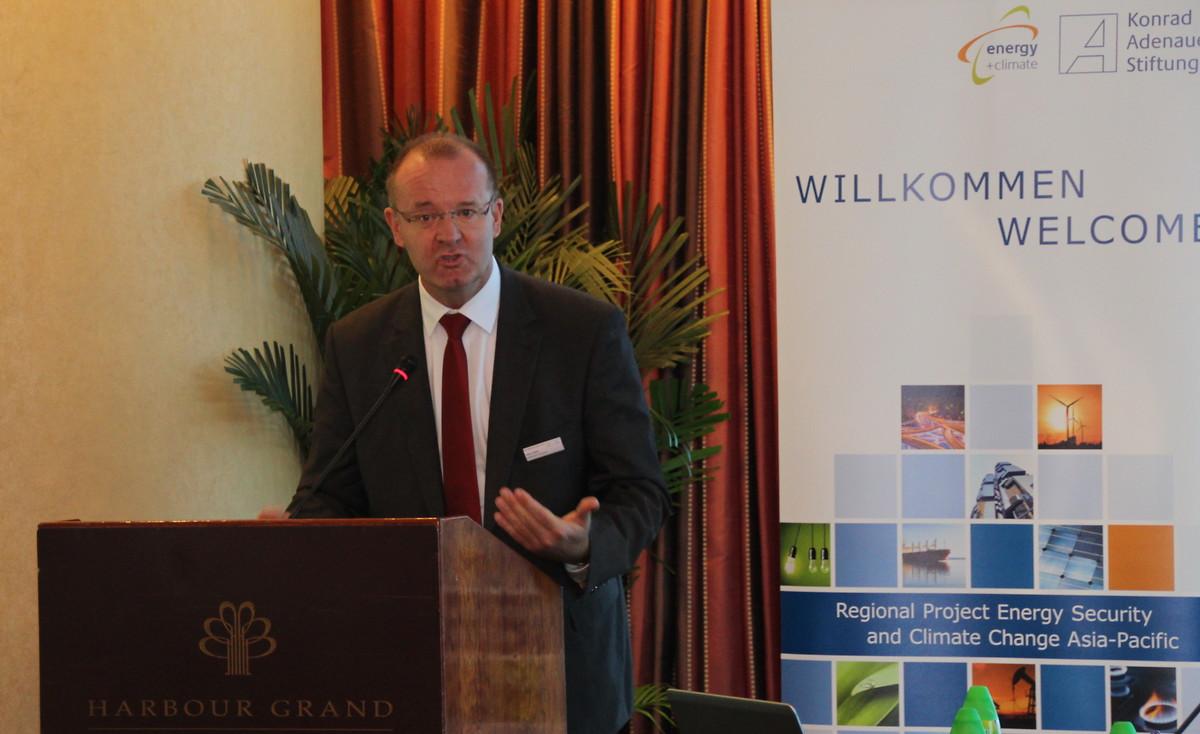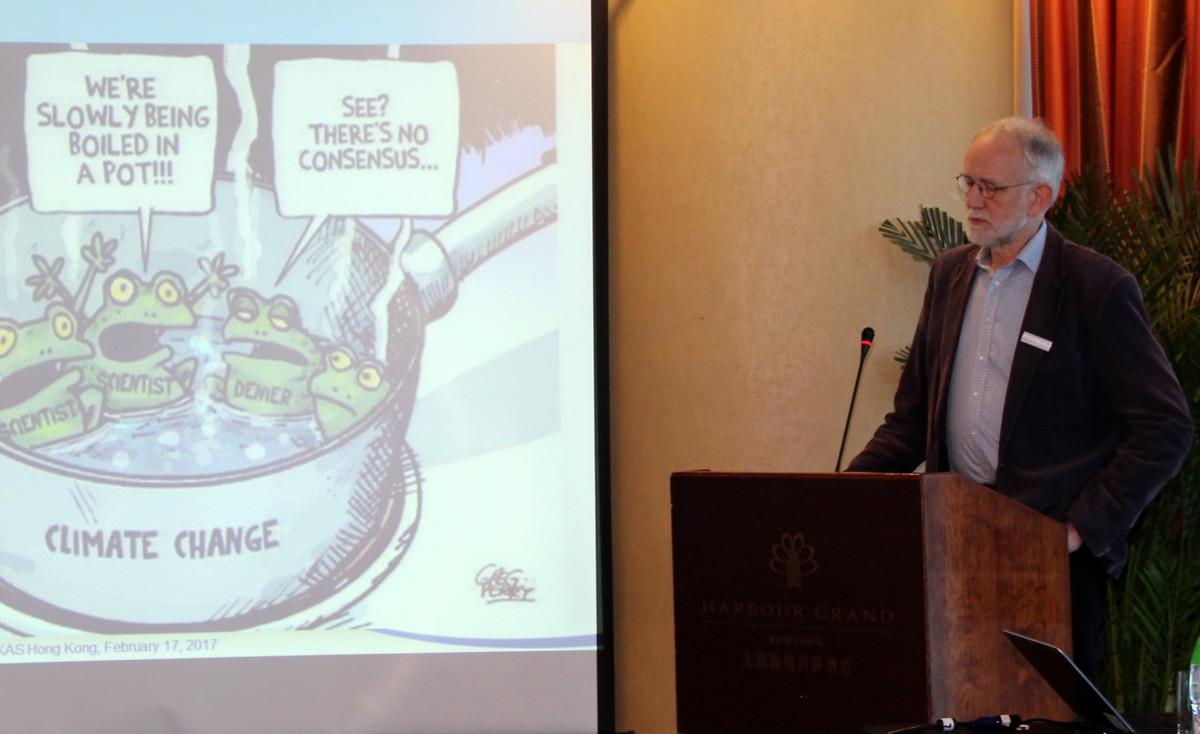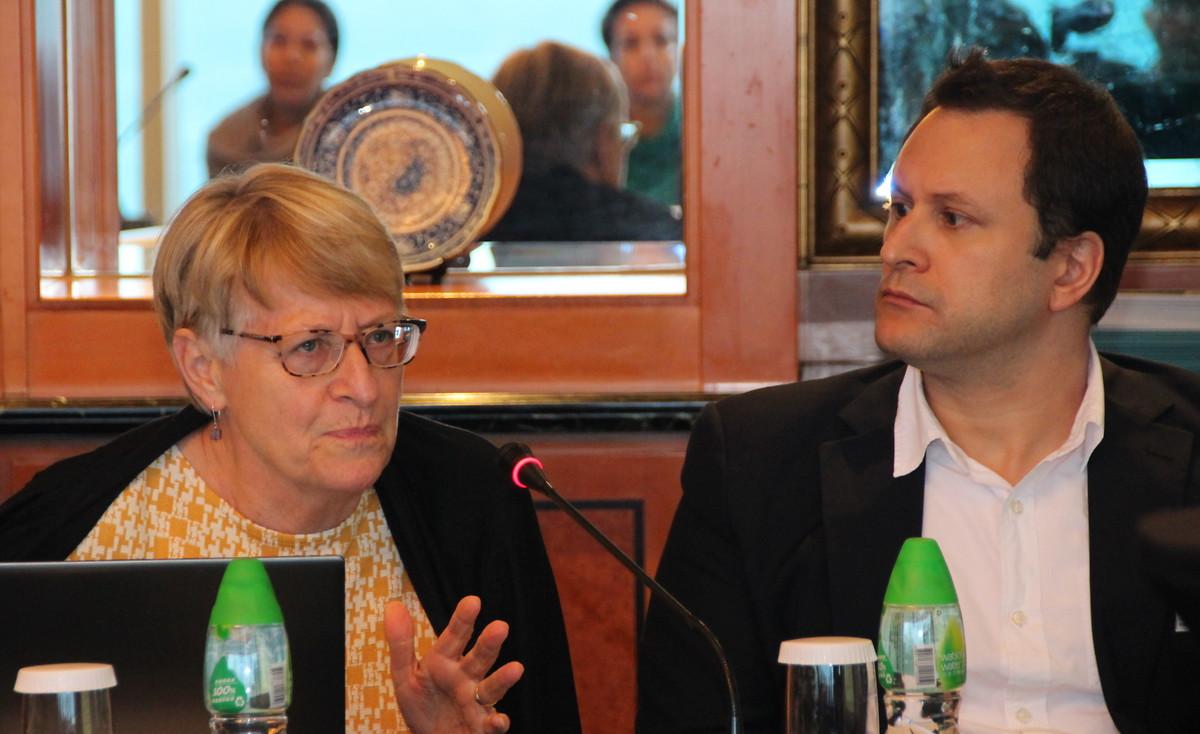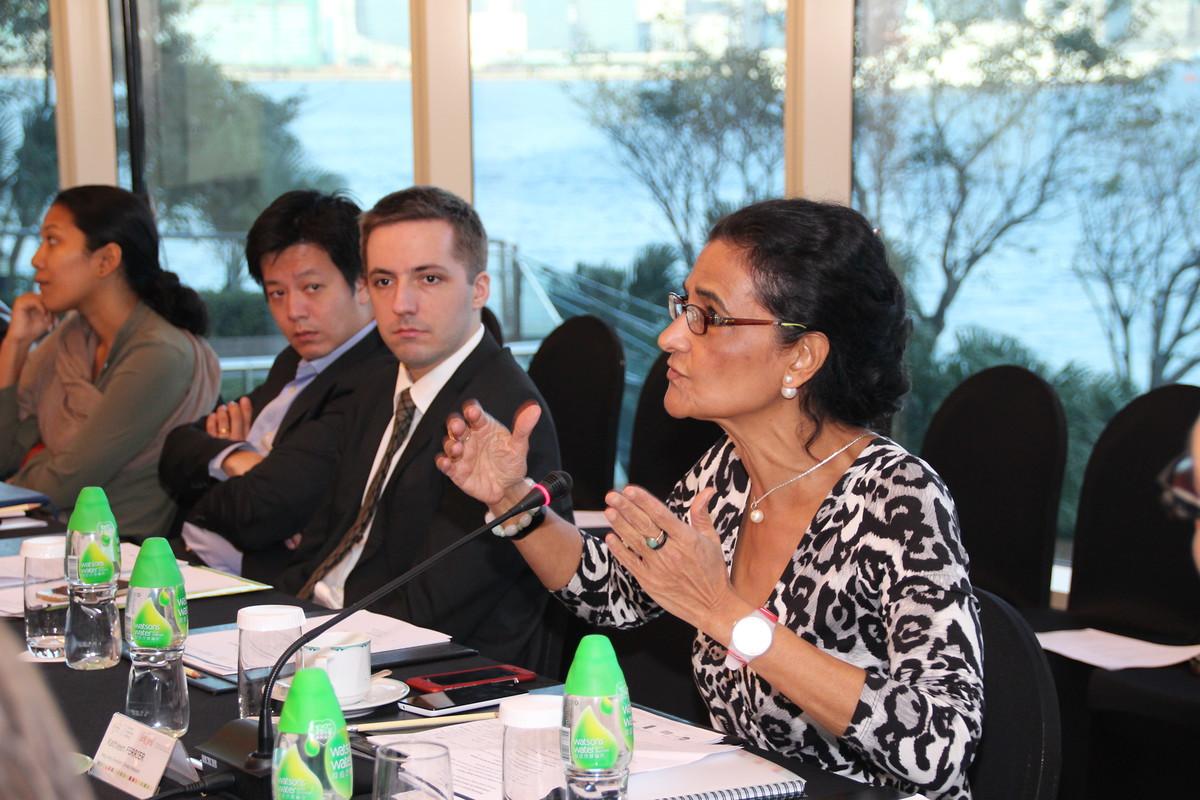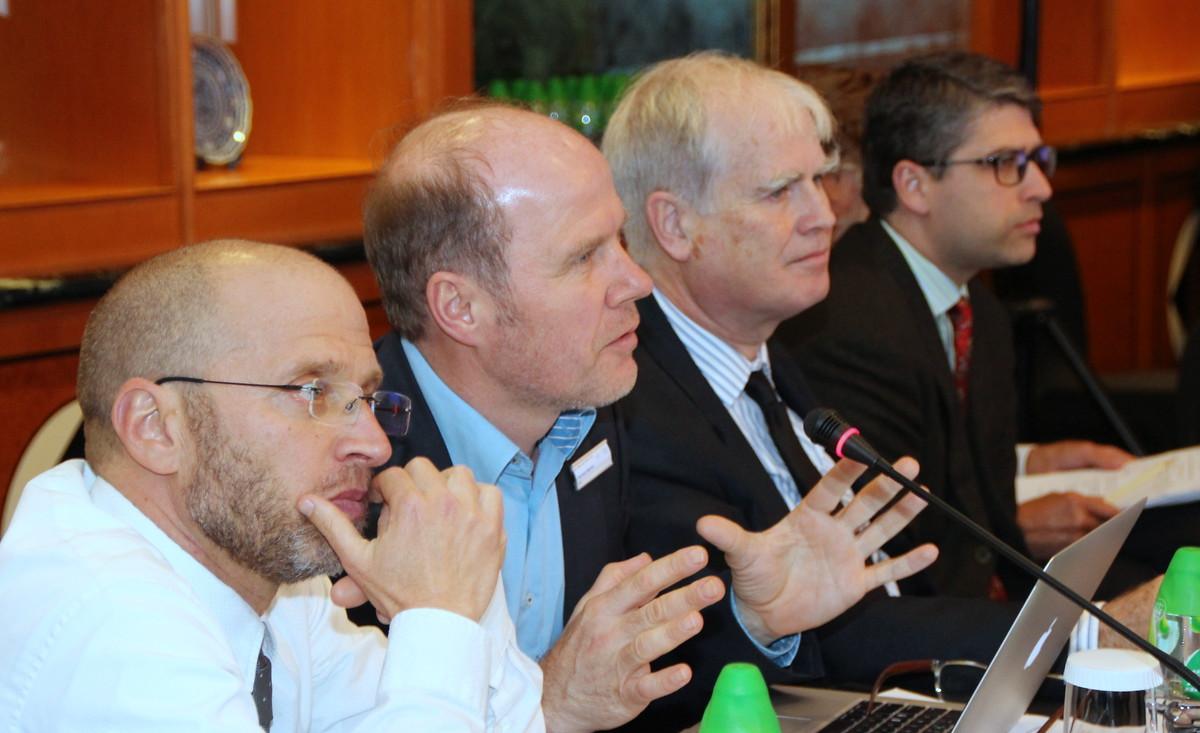Event reports
Mitigation and adaptation to climate change are the two pillars of global climate politics. These issues have been considered widely in national climate strategies. An equally important questions however is not yet answered: How shall a compensation for states and (groups of) persons whose livelihood is threatened by the impacts of climate change be implemented? The best known example are small islands in the South Pacific which will submerge in the rising sea level. But climate induced migration is also part of this problem.
These challenges have for a quite long time been subject to the discussions of scientific and financial experts. Different models have been developed so far. However, important legal and financial aspects are still unsettled and disputed. What is the current state of discussions? Are there already first projects from which chances and limits of such instruments can be derived? Which role can insurances play in contrast to other financial instruments?
For achieving answers to these challenges, RECAP and the Potsdam Institute for Climate Impact Research (PIK) on 17 and 18 February 2017 organised a two-day workshop in Hong Kong, China. PIK is among the most renowned European institutions doing research about the future impacts of climate change an nature and mankind.
Dr. Peter Hefele, Director of RECAP, and Prof. Dr. Detlef Sprinz, Senior Scientist at the Research Domain "Transdisciplinary Concepts & Methods" at PIK inaugurated the workshop. They delineated the diverse aspects of the topic and its conceptual as well as practical challenges in their view.
Despite substantial progress in modelling climate change and its impacts, a large gap between scientific findings and its applicability for concrete decisions in politics and economy remains. This is reinforced by the complex nature and interdependencies of (possible) effects. The core question of any discussion about the compensation of damage is which damages are caused by whom and how the effects can/must be attributed.
Till now, the United Nations Framework Convention on Climate Change (UNFCCC) was the main entity to deal with this problem in its international agreements, but other supranational and national legal systems are concerned as well. When addressing the question of financial compensation, an amount of aspects must be considered, for example issues of judicial foundations of claims, distributional effects and principles for evaluation.
Estimating risks and their transfer in the middle and long run is a core task of the financial and insurance economy. Indeed, traditional models for risk assessment have their limits when dealing with the impacts of climate change. Representatives of risk management and financial institutes referred to concrete cases in order to explain the possibilities and limits of such instruments. Especially the economic incentives of concrete solutions as well as their impacts on adaptation and mitigation should be considered more thoroughly.
Despite many unsolved questions, there are already some practical approaches to compensation. The island states of the pacific (AOSIS states) for instance, which are already directly threatened by the rising sea level, have founded an own risk assessment and financing initiative. It is intended to distribute the financial burden and lowering the risk for the small, economically weak countries considerably. Among the (re)insurances, the Munich Climate Insurance Initiative MCII - a consortium of leading reinsurances in Europe - is fostering the development of new business models.
All participants agreed unanimously that due to the accelerating pace of climate change new solutions are to be developed urgently. Global warming makes measures of compensation more expensive - and politically less enforceable. At the same time, it became obvious that financial compensation measures are economically reasonable only in combination with other elements such as measures for capacity building, a general improvement of good governance or a sensible integration of different dimensions of action.
Besides delineating the current situation, the workshop was also intended to identify thematic fields which require further research efforts and political regulation. This aim was accomplished by working groups who assembled in the concluding session of the event. The working group "law" identified a necessity to deal with issues such as the legal regulation of damages, a reformation of criminal law, and an assessment of damages of the cultural heritage of humanity. A special problem of international law is the national sovereignty (or its continuity) of the atoll countries in the Pacific which are likely to submerge entirely within the coming decades. Climate induced migration was also mentioned as legal challenge.
From a business perspective, there's no lack of data. The challenge consists rather in evaluating the quality of data, in interpreting and adapting it for economic decision processes. Furthermore, enterprises must get aware of the complex impacts of climate change on their entire value chain and adapt accordingly.
Possible future models of compensation for climate change impacts need to take account of the different political and administrative dimensions of action. This calls for connecting the various mechanisms of cooperation. Only then the needs of affected parties can be considered appropriately. They should be involved actively and not just receive support from outside. Carbon pricing or a kind of global distribution of financial burdens are possible future sources for funds of compensation.
In the coming weeks, PIK will compile a policy paper with concrete recommendations for further discussions and research.



